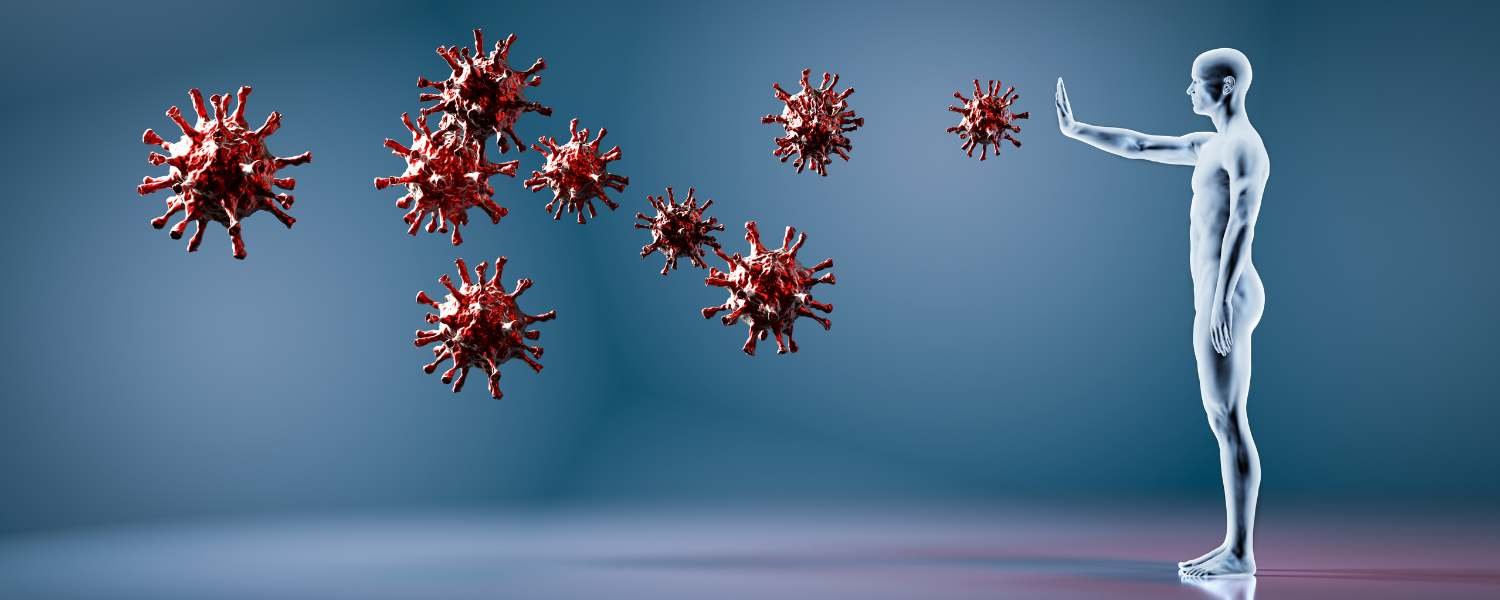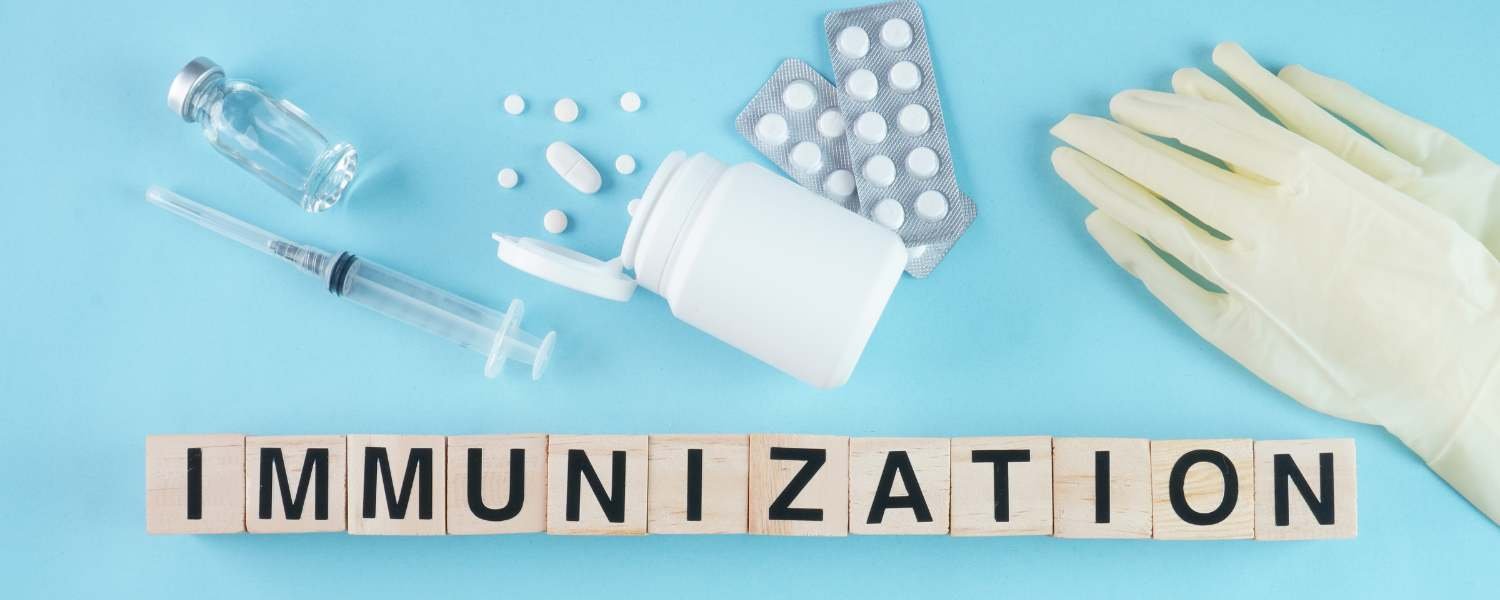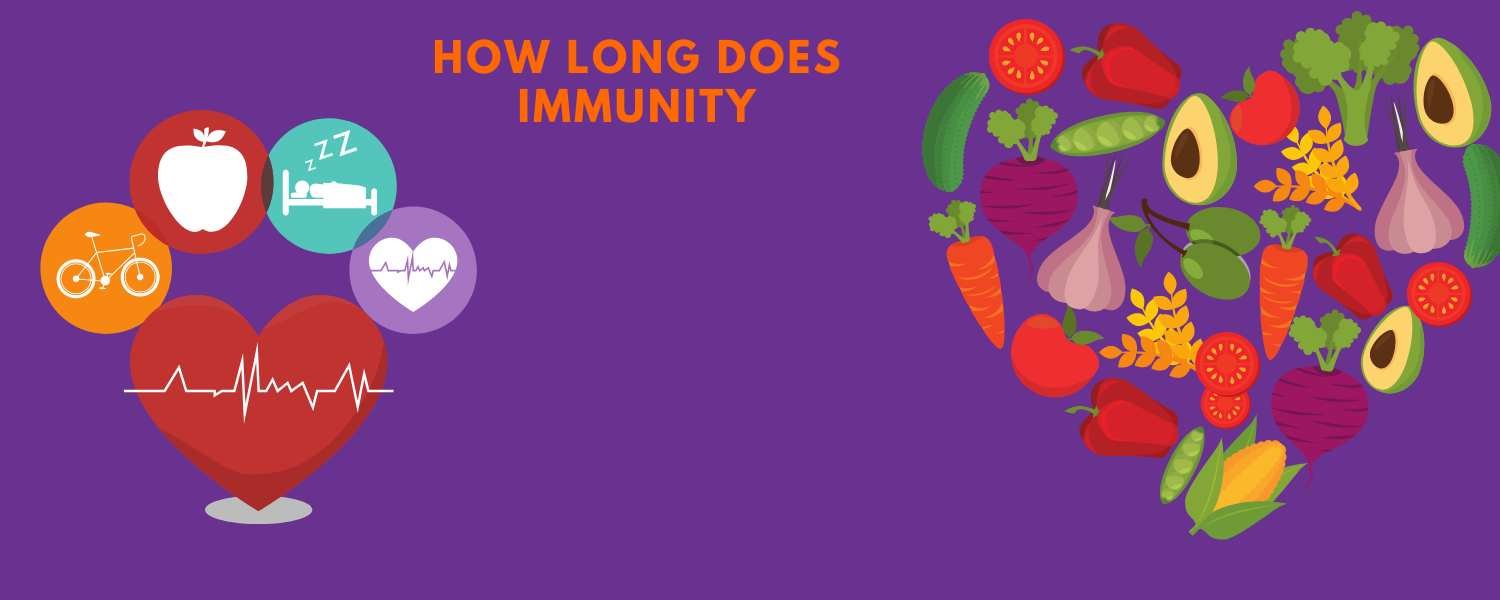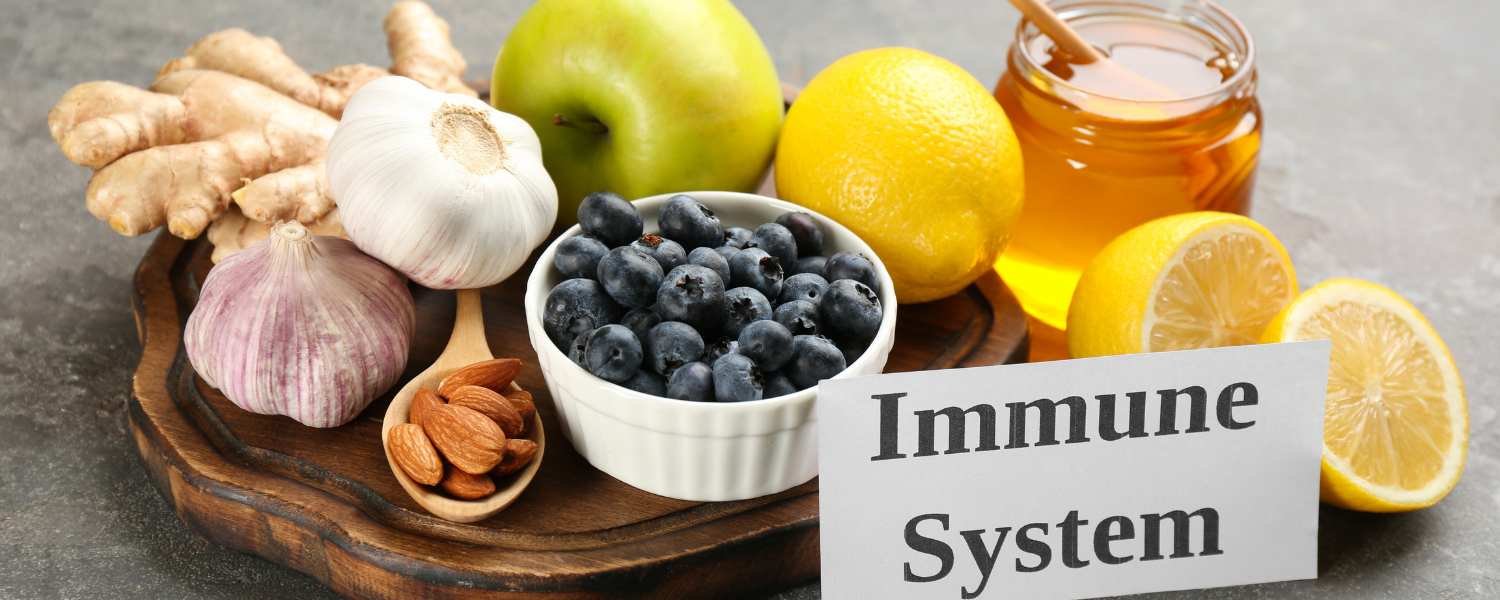Your cart is currently empty!
In the intricate tapestry of our immune system, what is natural immunity emerges as a fundamental protagonist, orchestrating a symphony of defenses against invading pathogens. This inherent ability of our bodies to fend off infections without external intervention is a testament to the marvels of biological adaptation. But what exactly constitutes natural immunity, and how does it intersect with the broader discourse on disease prevention and public health? This exploration delves into the intricacies of and this is what is natural immunity, unraveling its mechanisms, comparing it with vaccination strategies, and probing the dynamics of its duration and effectiveness. By navigating through these insights, we aim to illuminate the profound role of natural immunity in safeguarding individual and collective well-being.
What Is Natural Immunity?

Natural immunity is a crucial defense mechanism in the intricate dance between our bodies and pathogens. But what is natural immunity, and how does it work?
What is Natural immunity in the body’s innate ability to defend itself against infections and diseases. When a pathogen, such as a virus or bacteria, enters the body, the immune system produces antibodies specific to that invader. This process, known as active natural immunity, occurs after a germ has infected an individual.
Imagine you’ve caught a cold. While you may feel under the weather, your immune system works hard, creating antibodies to combat the virus responsible for your symptoms. Once the infection subsides, your body retains a memory of the pathogen, enabling it to mount a swifter and more effective defense if you encounter the same germ.
This phenomenon protects you against reinfection, making you less susceptible to twice falling ill with the same disease. And What is Natural immunity works as natural immunity acts as your body’s personalized shield, bolstering its defenses and fortifying its resilience against potential threats.
In essence, natural immunity stands as evidence of the extraordinary capacities of the human physique to adapt, learn, and defend itself against the myriad of pathogens that seek to invade it. It underscores the importance of supporting and nurturing our immune systems to ensure optimal health and well-being.
Can’t natural immunity be better than vaccines and immunization?

In disease prevention, the discussion often centers around the efficacy of vaccines versus relying on natural immunity. But what exactly is natural immunity, and how does it compare to the protection vaccines offer?
Natural immunity refers to the body’s capability to protect itself from pathogens, like bacteria and viruses, without medical intervention. It is a vital aspect of our immune system, developed through exposure to infectious agents or inherited genetic factors.
Active natural immunity occurs when the body encounters a pathogen, mounts an immune response, and develops antibodies to fight the infection. This process strengthens the immune system and protects against future encounters with the same pathogen.
Contrastingly, vaccines stimulate the immune system to respond similarly to natural infection without causing illness. Vaccines trigger antibodies by introducing a weakened or inactive form of the pathogen, effectively priming the immune system to recognize and combat the real threat in the future.
What is natural immunity and while both natural immunity vaccination aim to bolster the body’s defenses, immunization offers a strategic advantage by protecting against disease exposure. This preemptive approach allows individuals to develop immunity without risking the potentially severe consequences of falling ill.
In essence, vaccination harnesses the power of natural immunity by mimicking the body’s response to infection but in a controlled and safer manner. By understanding the complementary roles of what is natural immunity and vaccines, we can optimize our efforts in safeguarding public health and combating infectious diseases effectively.
How Long Does Natural Immunity Last?

Natural immunity, or innate or native immunity, refers to the body’s inherent ability to resist certain diseases without prior exposure or vaccination. It is a vital defense mechanism that protects us from various pathogens. However, the duration of natural immunity can vary significantly depending on the specific disease.
Active natural immunity occurs when an individual is exposed to a pathogen, such as COVID-19, and their immune system mounts a response, producing antibodies to fight off the infection. This type of immunity can protect against future encounters with the same pathogen. However, research suggests that natural immunity to COVID-19 may wane over time, with studies indicating that it may decline after approximately three months. But what is natural immunity and how does it work?
Diseases like measles often confer lifelong immunity after a single infection. This stark difference underscores the variability in the longevity of natural immunity across different diseases.
Understanding the dynamics of natural immunity is crucial, especially in emerging infectious diseases like COVID-19. Although natural immunity may offer a degree of defense, its duration and effectiveness may vary, highlighting the importance of vaccination as a complementary strategy to bolster immunity and prevent disease transmission.
In summary, natural immunity is a complex and ever-evolving process that plays a crucial role in our body’s defense against pathogens. While it offers protection against certain diseases, including COVID-19, its duration can vary, emphasizing the need for continued research and vigilance in our efforts to combat infectious diseases.
Types of Immunity

Understanding the intricacies of immunity is crucial to appreciating how our bodies defend against pathogens. What is Natural immunity? and It stands out among the various types of immunity.
What is Natural immunity? What is the body’s ability to resist specific pathogens or toxins? It’s our built-in defense mechanism, inherited from our parents, and is sometimes referred to as innate immunity. Unlike acquired immunity, which develops over time, natural immunity is present from birth.
Active natural immunity is a subset of natural immunity where the body produces its immune response to combat pathogens. This can happen through exposure to an infectious agent or through vaccinations. When our immune system encounters a pathogen, it creates memory cells that remember the specific threat, enabling a faster and more effective response upon subsequent exposure.
Understanding the nuances of natural immunity is crucial in appreciating the body’s defense mechanisms. It highlights the remarkable capabilities of our immune systems and underscores the importance of maintaining overall health to support its functioning. So, the next time you marvel at how your body fights off illness, remember the power of natural Immune at work.
Active immunity

In the realm of Immune, understanding the concept of natural Immune and its active form is crucial for grasping how our bodies defend against potential threats. What is Natural immunity, as the term suggests, is the innate defense mechanism inherent in our bodies, acting as the first line of defense against pathogens encountered in our environment. This form of immunity is passive, relying on the body’s existing barriers and non-specific responses to combat invaders.
On the other hand, what is natural immunity? Active Natural Immune is a proactive response orchestrated by our immune system upon exposure to specific pathogens. Active Immune is self-generated, unlike passive immunity, which may be acquired through external means such as maternal transfer of antibodies or antibody administration. Our immune system kicks into action when we encounter pathogens naturally, whether through the air or food we breathe.
One remarkable feature of active Immune is its ability to create immunologic memory. This memory is stored in specialized B and T cells that recognize specific pathogens. Once activated, these memory cells facilitate a swift and targeted immune response upon subsequent encounters with the same pathogen. This enables our immune system to respond rapidly and ensures a more effective defense against familiar threats.
Vaccines are pivotal in bolstering active Immune by mimicking natural exposure to pathogens without causing illness. By introducing harmless components of pathogens or weakened forms of the pathogens themselves, vaccines prompt our immune system to mount a defense and develop immunologic memory. In essence, vaccines provide a safe and controlled means to train our immune system, offering protection against diseases without the associated risks of natural infection.
Natural Immune and its active form are fundamental components of our body’s defense system. Through active immunity, our immune system builds resilience and preparedness against potential threats, aided by the strategic use of vaccines to fortify our defenses. Understanding these concepts underscores the importance of nurturing our immune health to safeguard against infectious diseases.
Passive immunity

Natural Immune protects the body’s defense mechanism against pathogens without external intervention. Unlike passive Immune, which involves the transfer of antibodies from an external source, what is natural immunity relies on the body’s immune system to produce its defenses. Active natural Immune occurs when the body encounters a pathogen, triggering an immune response that produces antibodies specific to that pathogen.
Maternal antibodies are crucial in providing passive Immune to unborn and newborn babies. During pregnancy, antibodies from the mother are transferred across the placenta, temporarily protecting the developing fetus. Additionally, breast milk contains antibodies, particularly colostrum, rich in immunoglobulin A (IgA), bolstering the infant’s immune system during the early stages of life.
While passive Immune wanes over time as the transferred antibodies degrade, active natural Immune strengthens as the body encounters and responds to pathogens throughout life. This dynamic process primes the immune system to effectively recognize and combat future infections.
Immunoglobulin treatments, although artificially obtained, can also provide passive immunity in certain situations. What is natural Immune? However, they do not confer the same long-term benefits as active natural Immune, as they do not stimulate the body’s immune response.
In summary, natural Immune, particularly active natural Immune, is vital to the body’s defense against infections, providing lasting protection through the immune system’s mechanisms.
What Is Herd Immunity?

Understanding the concept of herd Immune begins with grasping the fundamentals of natural Immune. What is Natural immunity? Natural Immune is the body’s innate defense mechanism against pathogens acquired through exposure to the infectious agent. Upon subsequent encounters, it operates through the immune system’s capacity to identify and eradicate external intruders, such as bacteria or viruses.
Active natural Immune occurs when an individual’s immune system actively responds to an infection, generating specific antibodies and immune memory cells to combat the pathogen. This acquired Immune protects against future encounters with the same infectious agent.
Herd Immune, on the other hand, occurs when a significant portion of the population attains Immune to a contagious disease, either through natural infection or vaccination. As a result, the spread of the disease is significantly hindered, protecting even those who are not immune or unable to be vaccinated, such as individuals with certain medical conditions.
Vaccines are essential for attaining herd Immune. They activate the immune system to generate a defensive reaction without inducing sickness. Through mass vaccination campaigns, diseases like smallpox have been effectively eradicated, showcasing the power of vaccines in preventing widespread outbreaks and saving countless lives.
In summary, natural Immune, particularly active natural Immune, contributes to establishing herd Immune, ultimately safeguarding communities against the spread of infectious diseases and advancing public health worldwide. This phenomenon is crucial for promoting health & wellness on a global scale.
What Are Hybrid Immunity and Super Immunity?

The concepts of natural Immune, hybrid immunity, and super immunity garner significant attention in the realm of immunity. But what exactly do these terms entail, and how do they influence our body’s defense mechanisms?
Natural Immune, the body’s innate ability to resist certain infections, forms the cornerstone of our immune system. It encompasses the defenses we are born with and those we acquire through life experiences, such as previous infections. Active natural immunity occurs when the body encounters a pathogen and produces antibodies, protecting future encounters. A proper diet plan can also significantly support and enhance natural Immune.
Enter hybrid immunity- super immunity – a phenomenon gaining prominence in COVID-19. This phrase denotes a robust immune reaction from natural infection and vaccination. Recent studies suggest that individuals who have recovered from COVID-19 and subsequently received vaccination may experience a turbo-charged boost in their immunity.
The intriguing aspect lies in the potential synergy between natural and vaccine-induced Immune. A breakthrough infection following vaccination could further enhance the body’s defenses, offering a robust shield against future encounters with the virus.
Understanding the dynamics of hybrid immunity underscores the complexity and adaptability of our immune system. As research unravels its intricacies, harnessing the power of natural Immune boosts holds promise in fortifying our defenses against evolving pathogens.
conclusion
In understanding the intricate mechanisms of Immune, from natural to hybrid and super Immunity for Your Health, we glimpse the remarkable resilience of the human body against pathogens. Natural Immune, an inherent defense system, serves as our first line of protection, bolstered by active responses to pathogens encountered throughout life.
Vaccination harnesses this innate capability to prime our immune systems, advancing herd immunity and disease prevention globally. The emergence of hybrid and super Immune, particularly in the context of diseases like COVID-19, highlights the dynamic interplay between natural and vaccine-induced defenses, offering potential avenues for even more excellent protection.
As we navigate the complexities of immunity, it becomes increasingly evident that our understanding of these processes is crucial for safeguarding public health and combating infectious diseases effectively. Embracing the synergy between natural and vaccine-induced Immune, we can strive towards a future where diseases are met with resilient defenses, ensuring the well-being of individuals and communities alike.
